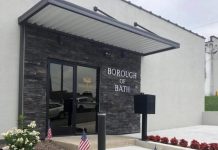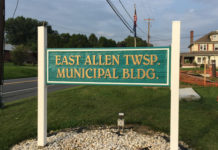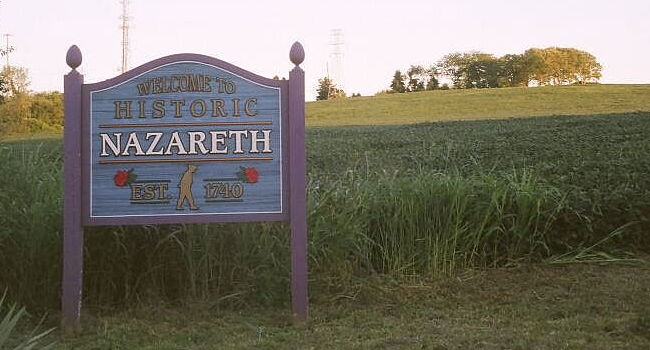
(Originally published in 2002)
This week, I continue my visit to the Borough of Chapman’s. Today, Clyde Roberts, a lifetime resident, shares his memories with our Home News readers.
Mr. Roberts walked from his Main Street residence to the borough hall to meet me and undergo cross-examination. Clyde, a genial man, has a great memory of the “slate” village.
His grandfather, father and Clyde all worked in Chapman’s slate quarries. Clyde was born October 9, 1922. A neighbor midwife delivered him, like many of the youngsters there. Mr. Roberts attended the Chapman’s school for eight years (today the residence of the Dymond family).
I asked him about his father. He replied, “My father William started at the quarry when he was 12 or 13. He left the school when he was in the sixth grade at the Chapman School. My uncle split the slate and my father dressed them. I was hired when I was 17 years old. I carried water to wet the slate blocks so they could be cut. I also went to the hand pump across from the present borough hall filling buckets of water to quench the thirst of the quarry workers.”
I asked him how much he was paid. He said, “At first I wasn’t paid anything. I was there to learn the quarry jobs. One day their foreman, Owen Jones, went to my dad and said he needed a ‘dresser,’ and to put me at the machine. I said with this new social security law I had to be 18 and I didn’t have a card. Owen said, ‘We will fix that, we will put your pay in your father’s pay envelope,’ and so he did. We worked on the piece rate. I needed plenty of experience to make money. Twenty-five dollars would be good money for five nine-hour days and a half day on Saturday.”
Clyde also remembered, “The Lehigh and New England Railroad ran up to the quarry. The railroad moved tons of our slate to big city projects, like buildings in New York City. I took the train to Bath to visit relatives but not very often. My father finally purchased his first car, a 1938 Plymouth, but he never drove, so I ended up driving.”
I asked him about the depression. “Times were tough so I helped farmers make hay and pick potatoes. I earned $2 a day but had to wait for my money until the farmers sold the crops. They always paid me.”
Clyde, who did your father vote for in 1932? He said, “I doubt if he voted for Franklin Roosevelt. Pop was a solid Republican and voted for Hoover.”
“The quarry was idle and my father used a sledge hammer to break rocks for roads. The W.P.A. (Workers Progress Administration) was giving laid off men jobs building roads. My dad worked at the slate company for years. He never received a pension. I remember when he got that first social security check. It was for $138.”
Mr. Roberts continued, “My father liked his job. He had no choice but to work in the quarries for all his relatives lived here so he couldn’t leave or the relatives might hunt him down.”
During my long discussion with Mr. Roberts I said, “Clyde, you are a very nice man for answering all of my questions.” With eyes beaming full of wit he said, “If I’m nice is debatable.”
Clyde, you really are!
Next time: A $650 home.








